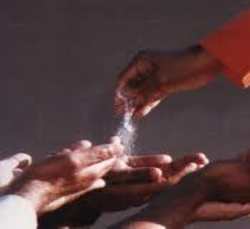In Addition
Vol 3 अंक 3
May/June 2012
High Sodium Foods List
The body needs sodium (salt) to function properly, but too much sodium increases the risk for stroke, heart attack, high blood pressure and kidney disease. The Mayo Clinic, USA, says healthy adults should consume no more than 2,300 mg of sodium per day. Those with high blood pressure, kidney disease or risk factors for heart problems should consume 1,500 mg of sodium or less each day.
FAST FOOD
Fast food restaurants offer quick and relatively inexpensive meals and snacks. This convenience comes at a price -- many fast-food items contain high levels of sodium. One apple pie from a fast food restaurant, for example, contains 400 mg of sodium, according to Colorado State University Extension, USA.
CONDIMENTS AND GARNISHES
The use of spreads and garnishes can turn low-sodium choices into high-sodium foods that increase daily sodium intake substantially. The Mayo Clinic advises anyone trying to reduce sodium intake to limit use of condiments, sauces and other garnishes. Ketchup, mustard, soy sauce, salad dressing and sauces contain sodium. Soy sauce has nearly half the recommended daily intake of sodium, with 1,029 mg of sodium per 1 tbsp. serving, according to Colorado State University Extension. Ketchup has 156 mg of sodium per tbsp. This represents more than 10 percent of the daily sodium intake recommended for someone following a low-sodium diet of 1,500 mg per day.
BAKED GOODS
In addition to high levels of fat and sugar, some baked goods also contain significant amounts of sodium. Washington University St. Louis reports that a 3.5 oz doughnut contains 500 mg of sodium, which accounts for more than 20 percent of the recommended daily intake. The same serving size of bread contains 300 to 500 mg of sodium, depending on the ingredients and preparation methods used. Other high-sodium baked goods include biscuits, muffins, baked pie crust and sweet rolls.
CANNED GOODS
Canned foods contain salt, which preserves the vegetables and prevents them from spoiling quickly. Salt also adds flavour to canned goods. High-sodium canned foods include canned kidney beans, pickled vegetables and sauerkraut. Colorado State University Extension reports that 1 cup of canned corn contains 384 mg of sodium. In contrast, fresh and frozen corn contains less than 10 mg of sodium per serving.
CHEESE
Oklahoma Cooperative Extension explains that processed cheeses contain disodium phosphate, which increases their sodium content. Cheese spreads also contain high levels of sodium. Examples of high- sodium cheeses include cheddar, Parmesan and American or packaged processed chesses. About 1 oz of American cheese, for example, contains 406 mg of sodium, according to Colorado State University Extension. Lower-sodium choices include cream cheese, Swiss cheese and mozzarella cheese.
SALTED SNACKS
Some snack foods have salt for added flavour, making it necessary to choose salt-free varieties or limit the consumption of salted snacks. Salted nuts, pretzels, tortilla chips and potato chips add sodium to your daily diet. Just two sourdough pretzels, for example, contain 490 mg of sodium, according to Rice University.
References USA
MayoClinic.com: How to Tame Your Salt Habit Now
Colorado State University Extension: Sodium in the Diet
Washington University St. Louis: Sodium Content of Common Foods Palo Alto Medical Foundation: Foods High in Sodium
Oklahoma Cooperative Extension: Dietary Salt and Sodium
Rice University: Salt and the Ultraendurance Athlete
...Leigh Zaykoski
Daily Tea Drinking Lowers Triglyceride Levels, Reduces Heart Disease Risk
Health-conscious individuals have known the importance of tea consumption for decades, opting for the pleasant tasting beverage over sugary carbonated soft drinks to help prevent metabolic imbalances such as insulin resistance and diabetes. More recently, diet soft drinks have been shown to increase risk of a number of chronic conditions due to the high acid content of the beverages that can disrupt cellular metabolism by robbing precious minerals such as calcium and magnesium.
Researchers from the US and Scotland have released the details of a study published in the journal Preventive Medicine that shows consumption of three cups of black tea daily can lower dangerous blood fat triglycerides by 36% and the predictive LDL to HDL cholesterol ratio by 17 percent, significantly improving cardiovascular health. The study authors noted "Moderate intake of black tea improves the levels of independent risk factors of cardiovascular disease and antioxidant defences in plasma."
Past studies have extolled the many virtues of drinking the less fermented green and white tea blends, as their high antioxidant content has been shown to lower risk from cancer, dementia and heart disease. Although the author specifically studied the impact of black tea on human health, they do not specify a specific mechanism for the action of black tea, and it is likely that all three tea varieties (black, green and white) will provide the same positive effects in reduction of heart disease risk.
Researchers recruited 87 participants between the ages of 25 and 60 to conduct the study. Each was randomly assigned to drink either three cups of black tea each day or the equivalent volume of hot water for a period of 12 weeks. The scientists found that consumption of black tea was associated with an 18.4 percent decrease in fasting blood sugar levels and a 36 percent decrease in triglyceride levels. Both high blood sugar and excess blood fats are known to be primary factors in increased risk of heart disease as well as a number of other deadly chronic diseases.
The research team concluded "High levels of polyphenolics, including the arubigins and the aflavins in tea can protect cells and tissues from oxidative damage by scavenging oxygen-free radicals. Tea phenolics may therefore be active antioxidants in the digestive tract and in other tissues after uptake." The result of drinking three cups of tea each day is substantial and provides a measured degree of protection against cardiovascular disease. Be sure to drink fresh brewed tea (hot or cold) and avoid any packaged or processed varieties that are laden with chemical additives. ...John Phillip
Sources for this Natural News article include:
http://www.sciencedirect.com/science/article/pii/S0091743511004877
http://www.ncbi.nlm.nih.gov/pubmed/22198621
http://www.nutraingredients.com
